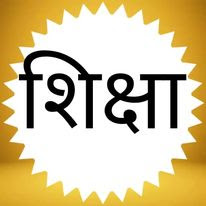Practice (Set) books, Guides, Guess papers banned at school level
The Ministry of Education, Science and Technology has banned the use of support books such as guides, guess papers and practice (Old is Gold) books at school level.
By issuing Curriculum, Textbook Development and Distribution Directive 2076, the Ministry has made an arrangement that such materials cannot be used in any class up to class 12.Earlier, it was mentioned that practice books, guess papers and guides could not be used. The ministry has issued a new directive after the use of such books as auxiliary materials was not stopped and tightened the publication, sale and purchase of such books.
Joint Secretary at the Ministry said that the Curriculum Development Center would not approve the sale of books printed only as question papers. The Ministry of Education has issued new guidelines integrating curriculum and textbook guidelines, school textbooks and textbook printing and distribution guidelines. "The use of helping books has already been banned," said, adding that "the guidelines have been further amended to strictly enforce up to class 12." The guideline states that other books can be used only with the approval of the center. Such books may be used only with the approval of the Textbook Management and Evaluation Committee.
An arrangement has been made to have a pricing recommendation committee under the coordination of the Director General of the Center for Education and Human Resource Development to determine the price of the book to be used at school level. The directory provides for the preparation of expert list for curriculum development. At least undergraduate and postgraduate qualifications have been established to become experts for basic and secondary level respectively. For textbook writing, the author can be selected through open competition. There is a provision in the guideline that the author or publisher can prepare the textbook for any class within the scope of the curriculum.
A meeting at the Ministry of Education (MoE) decided to ban guess papers and guide books meant for for grades X, XI and XII. Various publishing houses have been printing guess papers of various subjects from Grade X to the university level. The decision comes on the heel of pressure from stakeholders to discourage the increasing use of guess papers that target the examinees with ‘just-pass-mentality’.
According to Education Secretary, the decision was taken after the ministry’s evaluation found that readymade answer books are putting a brake on the creativity of students. “Education is to become an independent. However, guess papers are making students non-laborious and education has become exam-oriented,” said.
Secretary, Ministry of Education said the ministry had received complaints from guardians that their children were not paying attention to studies and losing their creativity. Hence, the decision to ban the sale of guess papers in the market. “Guess papers had created confusion among students and cases of cheating in the various examinations.”
He stated that some publishing houses had published pocket-sized guess papers which helped students cheat in the exam. The ministry directed the Curriculum Development Centre to implement the decision.
The MoE will set up a strong monitoring body under the Curriculum Development Centre to control the publication of guide books and, if need be, seize them.
“Those who violate the rule will be kept under the prevailing law,” said. The ministry’s decision has been welcomed by guardians, book publisher associations and education experts.
“We rally around the government decisions and are ready to help the government to implement its move,” said general secretary of Federation of Nepal Book and Stationary Business.
The MoE has also decided to take action against the officials who fail to make textbooks available in the respective schools by mid-April.
Similarly, it is also preparing to come up with directives for the private academic institutions to take prior permission from the MoE regarding the content and amount of money to be spent in their advertisements.
President of Guardians Associations Nepal said banning guess papers would enhance creativity among students but the way the decision was taken was not right. He said the government should have discussed with stakeholders, students and guardians before taking such a decision.
MoE would seek the help of police in carrying out raids at the publications that sell such guidebooks. The Federation of Nepal Book and Stationery Business has also come forward to help the government implement the ban on guidebooks that have had an adverse impact on the overall quality of education.
The federation had been seeking a ban on guess papers since 2005 as those involved in the business have been raking in huge profits at the cost of student´s future. “Around a dozen publication houses have currently employed qualified lecturers and professors to prepare the content for guess papers. These guess papers contain question and answers often repeated in the examinations relieving students of the burden of going through the course books,” Panta claimed.
Meanwhile, educationists have welcomed the education ministry´s plan but doubt the government´s ability to effectively implement it.
“Those involved in the guess paper business are likely to reach out to students by devising new ways. I doubt if the government will succeed in implementing the plan,” said. He suggested changing the question patterns for examinations so that students do not rely on readymade question-answer volumes.
Similarly, the government must also prioritize modification in the teaching methods. “A teacher must necessarily know how to relate practical application of a subject matter in real life situations to students. A student cannot develop his creativity unless he begins to internalize the subject matter taught,” Bidhyanath Koirala said.




Comments
Post a Comment
Comment to Shiksha